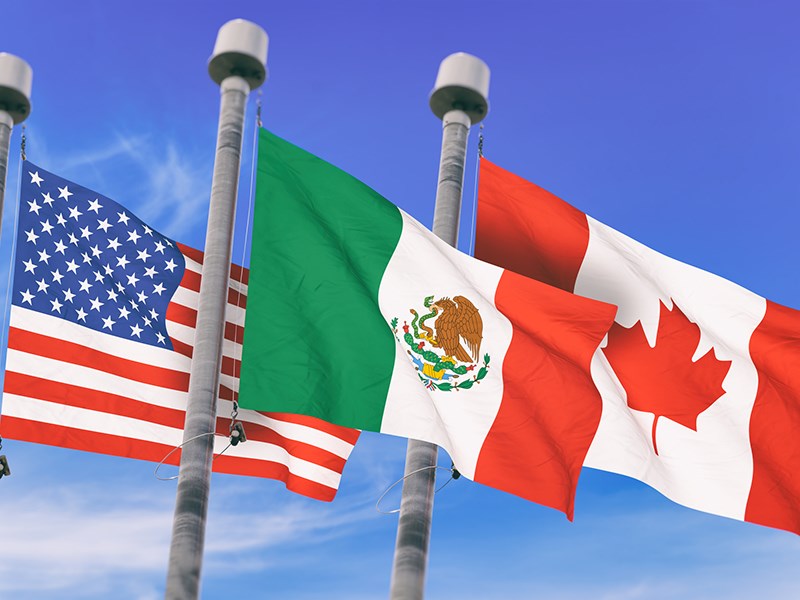After enduring more than a year of news stories about NAFTA negotiations with the United States, it is finally over.
With all that to-ing and fro-ing in the news, Trump’s threats and Trudeau’s strategizing, what does it actually mean for a small community like Powell River? It’s easy to get glassy-eyed with something that seems to involve just big industries such as automobiles and the federal government. So is it “ho-hum” or “wow” for Powell River residents and businesses?
There is definitely one “wow.” It has to do with something called ISDS, the Investor State Dispute Settlement chapter in NAFTA, which is gone from the new agreement. While the mainstream media has said little about this chapter, opponents of NAFTA, including me, have been criticizing this attack on Canadian sovereignty and democracy ever since the first NAFTA was signed in 1994.
ISDS allowed corporations to sue NAFTA governments if they do anything that could negatively affect the corporation’s future profits. Canada has been the subject of far more of these NAFTA cases than either Mexico or the US. To date we have paid out $314 million in legal fees and awards to corporations. A NAFTA tribunal actually ruled against Canada and made us pay because our environmental laws prevented the building of a quarry in Nova Scotia.
But the awards we’ve paid out are just the tip of the iceberg. There is something called the chill effect. The United States Trade Representative recently testified to Congress that regulations with all-party support and in the public interest were never enacted over fears they would trigger a NAFTA suit. In Canada, NAFTA chill is considered responsible for the Ontario government’s backing away from implementing public auto insurance.
The fact that we are now freed from this outrageous NAFTA clause is an enormous victory. While the target of ISDS challenges were usually provincial laws, there were cases taken against municipalities trying to protect their environment, something Powell River feels strongly about. Now we can do that without fear of retaliation through NAFTA.
The other aspect of NAFTA 2.0 (called USMCA) that has implications for Powell River and other municipalities is the whole area of procurement, the purchase by the city of goods and services from the private sector. The federal government was keen to open up the US market to large Canadian corporations, but in order to do that Canada would have had to allow US corporations the right to bid on local contracts here. That would have been another nail in the coffin of buying local. Fortunately, the US said no.
But local procurement is still threatened by yet another agreement, the Comprehensive Trade and Economic Agreement (CETA) with Europe. It is not fully implemented but it includes a procurement chapter that gives European companies equal rights to Canadian companies to bid on any large public procurement contract in the country, including at the municipal level.
Powell River Chamber of Commerce actively promotes the idea of buying local, and last April wrote a strongly worded letter to council criticizing the city on this score. The criticism turned out to be the result of a misunderstanding.
Instead, the chamber might want to use its moral authority to pressure its own parent organization, the Canadian Chamber of Commerce. At the national level, the chamber lobbies hard for trade agreements like CETA that prevent municipalities from showing any preference for buying local.
Murray Dobbin is a Powell River freelance writer and social commentator.



